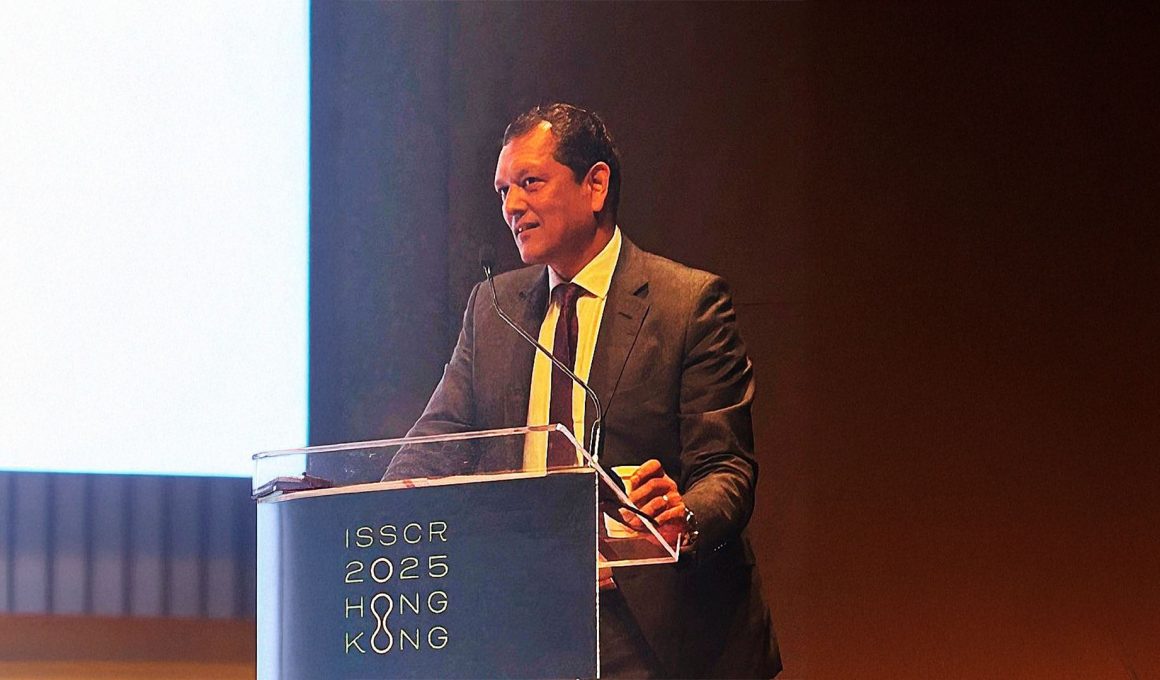As a young pediatric cardiologist at Boston Children’s Hospital, Dr. Amit Rakhit, known as ‘Dr. Amit’ to friends, cared for some of the world’s most critically ill children. Families came from around the globe, seeking hope and answers at one of the few institutions capable of treating the most complex pediatric heart conditions.
“Boston Children’s gave me a front-row seat to how medicine is practiced differently around the world,” he recalls. “That experience made me ask: could I have an impact beyond the four walls of a hospital?” That question would ultimately take him from the ICU to the C-suite, where for over two decades he has shaped the development and delivery of therapies across neurology, oncology, rare disease, and more. Today, as Chief Medical Officer at BlueRock Therapeutics, Dr. Amit is a recognized leader in the biotech and pharmaceutical sectors, redefining what it means to help patients at scale.
From the Bedside to the Boardroom
Like many physicians, Dr. Amit entered medicine with a mission to help others. Pediatrics, particularly cardiology, drew him in for its complexity and emotional weight. “Children can’t always tell you what’s wrong,” he says. “It requires not only medical skill but intuition, communication, and empathy. You’re treating the child, but also supporting an entire family.”
Yet over time, a deeper calling emerged. While his clinical work was fulfilling, Dr. Amit began to consider how he could influence health outcomes on a broader level. A chance opportunity with Bristol-Myers Squibb opened the door. “They were looking for a pediatric cardiologist to support a pediatric program for Plavix,” he says. “I had no industry experience, but they said they would teach me. I told myself, I’ll give it a year and go back to academia if it’s not a fit. I never went back.”
What followed was a career that took him through leadership roles at Biogen, Ovid Therapeutics, and Sporos Bioventures, among others. Whether guiding teams through an IPO or spearheading global medical affairs, Dr. Amit kept his focus on the same goal that once guided him as a clinician: improving patient care.
Adopting a New Mindset
Transitioning from medicine to industry demands more than learning the language of biotech. It requires a fundamental shift in how success is defined. “In clinical medicine, you’re often making decisions solo,” Dr. Amit explains. “In industry, nothing is done alone. Every major initiative is a team effort, and often the best decision is not your personal preference but what is best for the program or the patient.”
Entering the industry, however, requires a shift in identity. The confidence built in clinical settings must often be set aside in favor of curiosity and humility. “You need to be okay with not being the expert at first,” he says. “And you need to be genuinely open to other perspectives, from scientists, regulators, even people with entirely different professional backgrounds.” Dr. Amit believes the most important ingredient for success is a clear, purpose-driven mindset. Without it, the transition can feel aimless. “If you are moving into industry because you are burned out or frustrated with clinical practice, that’s not enough,” he shares. “You need a true passion for transforming medicine. That mission has to guide you.”
Building a Roadmap to Influence
For those considering a similar path, Dr. Amit outlines three clear steps. The first is clarity. “Understand your own goals. Do you enjoy clinical development, where you run trials? Or are you drawn to scientific exchange, which might point to medical affairs? There are multiple paths, but they require different mindsets and skill sets.” The second step is to assess your experience through a new lens. “Many clinicians have transferable skills they do not even recognize,” he says. “Have you worked on a clinical trial? Published research? Been part of a cross-functional team? Those are all relevant to industry roles.”
Finally, he urges strategic networking. “When I first joined the industry, I didn’t know anyone. Today, after years of working across organizations, I have contacts at almost every major company. Conferences, informational interviews, and even reaching out cold on LinkedIn can go a long way. Most people are happy to share what they know.”
Mentoring the Next Generation
As someone who has made the leap, and thrived, Dr. Amit remains committed to mentoring others. He regularly speaks with students, residents, and early-career physicians who are curious about nontraditional paths. “There are so many ways to make an impact with a medical background now,” he says. “Finance, health tech, policy, pharma. The idea that you must only be in clinical practice is outdated. The ecosystem is so much broader.” Looking back on his career trajectory, Dr. Amit wouldn’t change a thing. “The work has taken me around the world. I’ve helped build companies, shape medicines, and work alongside incredible people,” he says. “I still believe I am helping patients, just on a much bigger scale.”
To connect with Dr. Amit Rakhit, visit his LinkedIn.








